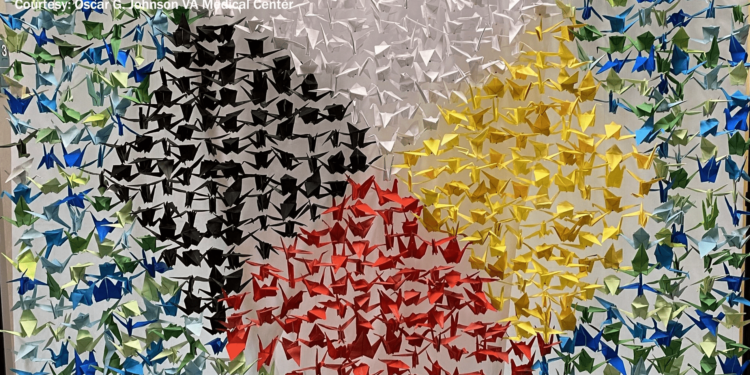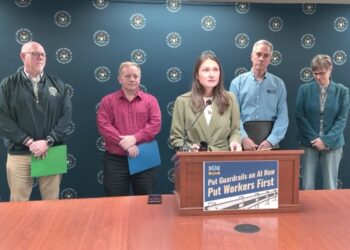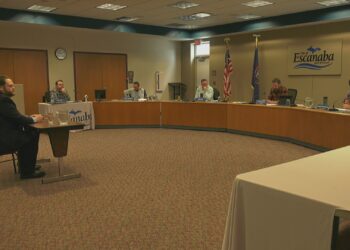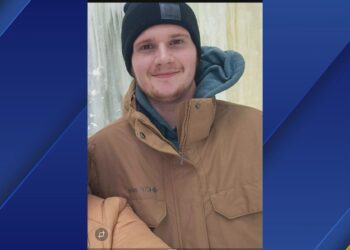IRON MOUNTAIN, Mich. (WZMQ) – The Native American Program Manager, Gail Beauchamp, and the Suicide Prevention Coordinator, Sharon Anastas, have joined forces to provide crucial support to tribal communities, ensuring access to care and crisis services. Since the inception of the pilot program with the Office of Rural Health in 2018, the Native American Veteran Program has been steadfast in its mission. The program expanded in 2021 to provide better outreach of the services available to Native American Veterans and their families or caregivers.
Throughout the year, the program has conducted an impressive 26 outreach events with tribal partners. Excitingly, the VA hospital is set to introduce a pioneering role: a Native American Navigator.
Beauchamp stated, “We are very excited to be the first VA in the country to be rolling out a Native American Veteran Navigator Program. And that will be the hiring of a Native American Veteran, who will do exactly what the title says, which is navigate our native veterans through our hospital, through our services and put them in touch with any services they might need from us.”
Beauchamp further highlighted the wide range of services available to Native American veterans, encompassing assistance in navigating the justice system, homeless veteran support, Intimate Partner Violence assistance, and Women’s health services.
The VA hospital in the U.P. stands out as the most rural in the entire VA system, with a high number of veterans per square mile, which often presents transportation challenges for outreach.
Anastas emphasized, “We are the most rural VA in the whole VA system due to the number of veterans we have per square mile. So I think the biggest challenge is transportation. Reaching, getting the message out to veterans, especially our native veterans. And for those veterans that are living in remote areas, it can be a challenge. I think one of the biggest services we have for bridging that challenge is our VVC (Video Veteran Connect) services, our tele-services. Being able to reach veterans where they’re at. I think it’s so critical, especially with our tribal communities. Especially in the winter, it gets very remote.”
Anastas also stressed the importance of the 9-8-8 crisis line, available not only for veterans, but also for family members or caregivers who have concerns for a veteran or Native American veteran in their care.
“One of the things that myself as the program manager for suicide prevention, and Gail as the head of our Native American Programming wants our Native community to know that, number one, there are Native American programming and services that we offer to veterans. It’s really critical to get that information out there. That we are looking at ways that we can not only continue the services that we’re providing, but expand those. And part of that is really creating partnerships with our Native American Communities. And that’s what Gail and I do together is combine our efforts to go out and let our Native American Communities know that the VA is here, and the services that we offer,” Anastas commented.
Both program managers expressed their commitment to providing Native American programming and services to veterans, expanding services, and creating partnerships with Native American communities.
As Native American Heritage Month approaches, the Native American Program is preparing hospital enhancements, such as featuring a Native American dish each week, and providing cultural considerations presentations for staff. Three-Sisters Soup is one of the dishes in the discussion to be featured in the cafeteria menu, and the public is invited to dine in the hospital’s cafeteria.
The Paper Crane Medicine Wheel, symbolizing suicide awareness and prevention for Native American veterans, will be on display at the hospital’s outpatient entrance throughout November, accompanied by an explanation placard describing its significance. An information booth on services available to Native American veterans will be set up in the outpatient lobby for the entire month of November, demonstrating the hospital’s unwavering commitment to the well-being of Native American veterans and their communities.
For more information about benefits available to Native American Veterans, visit:
https://www.benefits.va.gov/persona/veteran-tribal.asp
To reach the veteran crisis line, visit:
https://www.veteranscrisisline.net/
*Photos of medicine wheel taken by Tim Ellison of the Oscar G. Johnson VA Medical Center.










